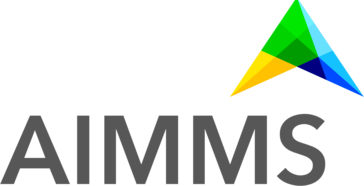We are pleased to announce Team Bern Unicorns from the University of Bern as the winners of the 14th AIMMS-MOPTA Optimization Modeling Competition. Team Bern Unicorns' solution, report and modeling effort was selected as the most comprehensive among the three finalists at the MOPTA conference banquet, which took place at Lehigh University, Bethlehem on July 26, 2022. AIMMS is excited to continue supporting MOPTA.
This year’s problem statement, designed by Dr. Karmel S. Shehadeh (Lehigh University) and Dr. Luis Zuluaga (Lehigh University), explores surgery scheduling in flexible operating rooms under uncertainty. The participants were tasked to develop an efficient and implementable optimization model with a user interface of finding the best solutions. All the three finalists did an excellent job in developing various approaches to arrive at their recommendations.
Team Bern Unicorns includes Nicklas Klein, Robin Hauenstein and Nicola Travaglini, advised by Norbert Trautmann. The team proposed a two-stage stochastic mixed-integer linear programming (MIP) model for the problem and a matheuristic solution procedure to generate near-optimal solutions within a reasonable time. The proposed metaheuristic utilizes the special structure of the MIP and combines the two well-known heuristic approaches Fix-and-Optimize and Local-Branching. In addition, they provided an extensive literature review of different methods to solve this problem and insights into it under different parameter settings. They also created a user interface to find and visualize the optimal solutions.
The other two finalists were Team HospITAls consisting of three PhD students from University of Pavia – Ambrogio Maria Bernardelli, Lorenzo Bonasera, and Eleonora Vercesi - and Team TU Berlin, with Mohammed Majthoub Almoghrab and Przemyslaw Bartman representing Berlin Institute of Technology. Team HospITAls compared the performance of a stochastic optimization model with sample average approximation with two metaheuristics for the advance and allocation scheduling. Team TU Berlin approached the problem in two phases with a two-stage stochastic program and sample average approximation.
Congratulations to all teams! And thanks to all teams who contributed to the competition.




